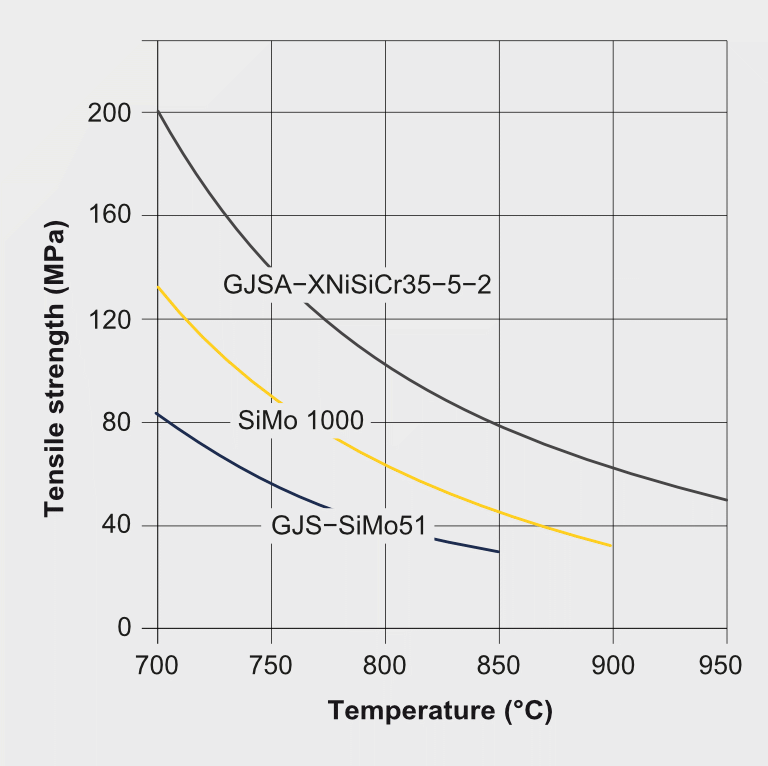Ductile (nodular) cast irons
Advantages: high strength, good elongation, and increased toughness
Typical applications: complex-shaped components subject to high acceleration or impact loads, pipes, and vessels
Typical applications for SiMo irons: turbocharger housings, engine exhaust manifolds, and furnace components
Effects of molybdenum: increases strength, especially at elevated temperatures
Nodular iron, in contrast to grey iron, contains graphite in the form of isolated spheroids within a ferrite or pearlite matrix. This arrangement results in higher strength, good elongation and increased toughness compared to iron containing lamellar graphite. Nodular irons are particularly interesting for manufacturing complex-shaped components used for engine or machine parts, subjected to high acceleration or impact loads as well as for pressure pipes and vessels.
Molybdenum is added to nodular iron for further enhancing strength. Additions up to 0.5% do not harm the graphite morphology or nodule count. Molybdenum added to nodular irons particularly enhances tensile, creep, and stress-rupture strengths at elevated temperature. These improved properties led to the development of SiMo irons containing 4-5% silicon and 0.5-1.0% molybdenum, which can be used for service temperatures up to 820°C. These alloys are suitable for applications such as turbocharger housings, engine exhaust manifolds, and furnace components.
Silicon and molybdenum are complementary alloying elements with silicon providing oxidation resistance and raising the ferrite-to-austenite transformation temperature (A1), while molybdenum increases the elevated temperature strength and creep resistance. Constrained thermal cycling tests of ferritic SiMo nodular iron demonstrated a strong beneficial effect of molybdenum. A more recent variant of SiMo iron (SiMo1000) is alloyed with around 1% molybdenum and a high aluminum addition of around 3%. In contrast, silicon is reduced to 2.5%. This alloy composition enables a higher operating temperature limit of 860°C.
High temperature strength of SiMo ductile iron alloys and application areas


